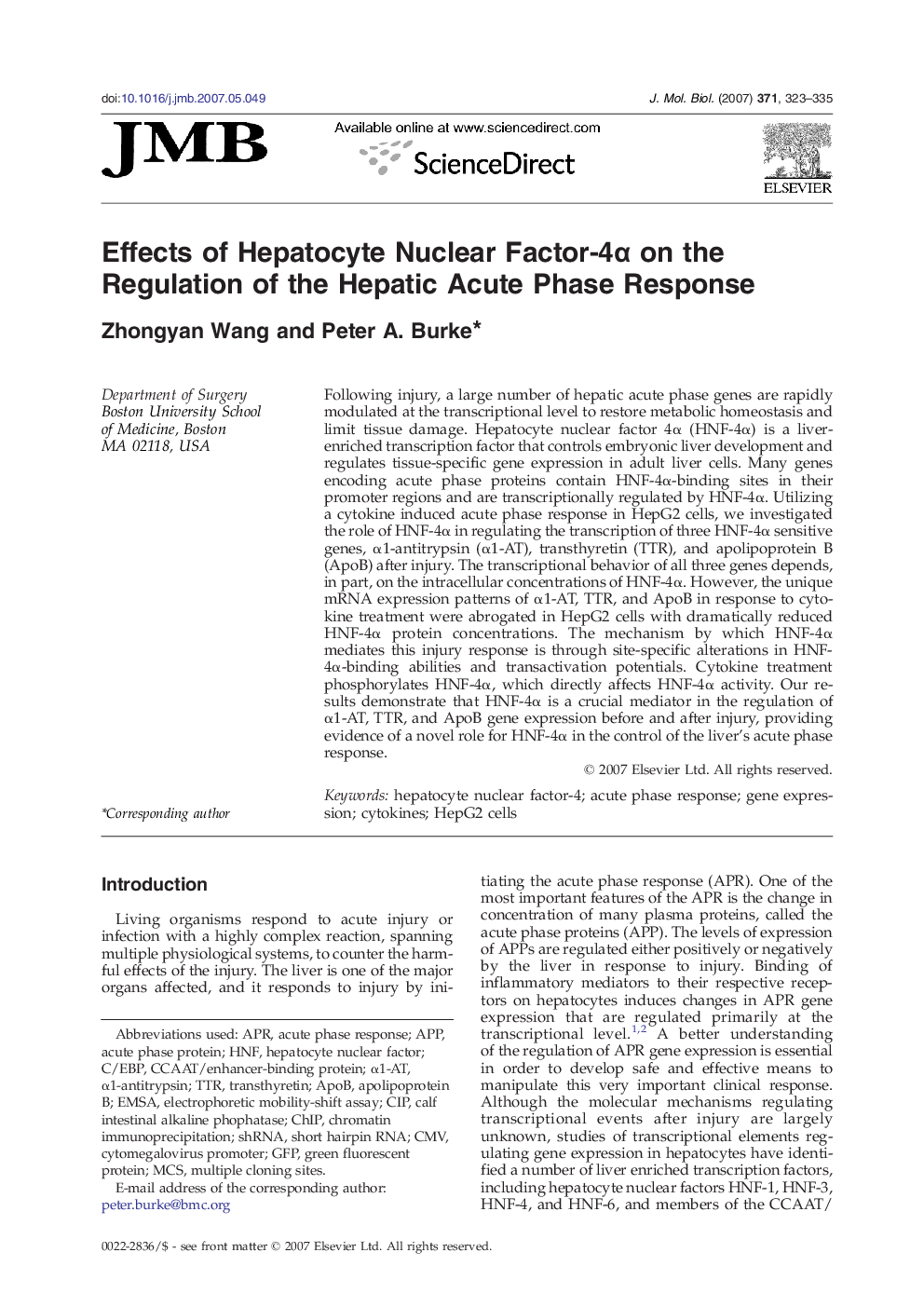| Article ID | Journal | Published Year | Pages | File Type |
|---|---|---|---|---|
| 2188189 | Journal of Molecular Biology | 2007 | 13 Pages |
Following injury, a large number of hepatic acute phase genes are rapidly modulated at the transcriptional level to restore metabolic homeostasis and limit tissue damage. Hepatocyte nuclear factor 4α (HNF-4α) is a liver-enriched transcription factor that controls embryonic liver development and regulates tissue-specific gene expression in adult liver cells. Many genes encoding acute phase proteins contain HNF-4α-binding sites in their promoter regions and are transcriptionally regulated by HNF-4α. Utilizing a cytokine induced acute phase response in HepG2 cells, we investigated the role of HNF-4α in regulating the transcription of three HNF-4α sensitive genes, α1-antitrypsin (α1-AT), transthyretin (TTR), and apolipoprotein B (ApoB) after injury. The transcriptional behavior of all three genes depends, in part, on the intracellular concentrations of HNF-4α. However, the unique mRNA expression patterns of α1-AT, TTR, and ApoB in response to cytokine treatment were abrogated in HepG2 cells with dramatically reduced HNF-4α protein concentrations. The mechanism by which HNF-4α mediates this injury response is through site-specific alterations in HNF-4α-binding abilities and transactivation potentials. Cytokine treatment phosphorylates HNF-4α, which directly affects HNF-4α activity. Our results demonstrate that HNF-4α is a crucial mediator in the regulation of α1-AT, TTR, and ApoB gene expression before and after injury, providing evidence of a novel role for HNF-4α in the control of the liver's acute phase response.
